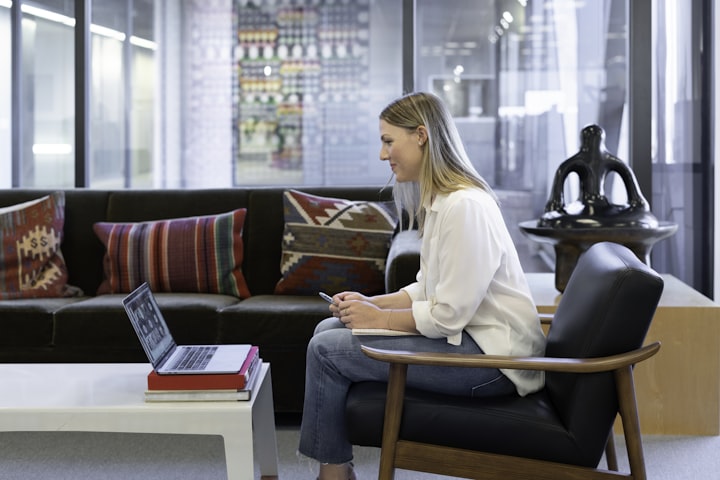
In the age of COVID-19, many job interviews have transitioned to the virtual space. For some, this is a welcome change - no need to dress up, no commute, and the opportunity to conduct the interview from the comfort of one's own home. But for others, the virtual interview can be daunting, with unfamiliar technology and a lack of face-to-face interaction.
Samantha was one such person. She had been job searching for several months and was excited to land an interview with a top company. But when she found out that the interview would be conducted over Zoom, she began to feel nervous. She had never done a virtual interview before and was worried about the potential technical difficulties.
To prepare, Samantha did her research. She read up on tips for virtual interviews and practiced using Zoom with a friend. She also made sure to test her internet connection and set up a professional-looking background for the interview.
When the day of the interview arrived, Samantha logged into the Zoom call early, eager to make a good impression. She was greeted by her interviewer, who was friendly and understanding of any potential technical difficulties.
The interview proceeded much like a traditional in-person interview, with the interviewer asking Samantha about her experience and skills. Samantha tried to make a connection with the interviewer through the screen, maintaining eye contact and speaking clearly.
However, Samantha found it difficult to read the interviewer's body language and gauge their reactions to her answers. Without the nonverbal cues that come with in-person conversation, Samantha was left wondering if she was making a good impression.
Despite this challenge, Samantha persevered, focusing on her responses and trying to stay confident. She made sure to thank the interviewer for their time and follow up with a personalized thank-you email after the interview.
A few days later, Samantha received a call from the company. To her delight, she was offered the job! The interviewer mentioned that they were impressed with Samantha's skills and her ability to navigate the virtual interview process.
Through her experience, Samantha learned the importance of adapting to new situations and technologies. She saw that while virtual interviews may present challenges, they also provide opportunities for candidates to showcase their adaptability and resilience.
Samantha's success also speaks to the larger trend of remote work and virtual communication in the modern world. As more companies shift to virtual interviews and remote work, it's important for job seekers to be able to navigate this space with confidence and ease.
Indeed, the COVID-19 pandemic has accelerated the shift towards remote work and virtual communication. Many companies have realized that remote work can be just as productive as traditional office work, and some have even opted for permanent remote work options. As a result, virtual interviews are likely here to stay.
For job seekers, this means that mastering the virtual interview is more important than ever. It's not just a matter of being able to impress the interviewer - it's also about demonstrating the ability to work effectively in a remote environment.
One key aspect of virtual communication is the need to be concise and clear in your messaging. In a virtual interview, there may be more distractions than in an in-person interview, and it can be harder to maintain the interviewer's attention. By focusing on clear, concise responses and avoiding rambling or tangential answers, job seekers can keep the interviewer engaged and demonstrate their communication skills.
Another important factor is to be prepared for potential technical issues. While it's always a good idea to test your internet connection and equipment before the interview, technical issues can still arise. Job seekers should be prepared to troubleshoot issues quickly and effectively, and to have a backup plan in case of an unexpected outage.
Finally, it's important for job seekers to do their research on the company and the interviewer beforehand. While this is always important in any job search process, it can be especially important in a virtual interview, where there may be fewer opportunities to make a personal connection. By showing knowledge of the company's mission and culture, job seekers can demonstrate their enthusiasm and fit for the position.
As the world continues to shift towards remote work and virtual communication, job seekers who are able to adapt to this new environment will be at an advantage. By mastering the virtual interview process and demonstrating the ability to work effectively in a remote environment, job seekers can position themselves for success in the modern job market.
In conclusion, while the virtual interview may seem daunting at first, it's important for job seekers to embrace this new mode of communication and take advantage of the opportunities it presents. By doing research, preparing for technical issues, and focusing on clear communication, job seekers can successfully navigate the virtual interview and demonstrate their skills to potential employers. As the world continues to shift towards remote work and virtual communication, these skills will only become more important for job seekers.





Comments
There are no comments for this story
Be the first to respond and start the conversation.